ITU’s Global event on
Emerging Technology for Connectivity: Accelerating Digital Transformation in LDCs, LLDCs, and SIDS was a virtual event organized by ITU from 5-9 July to share experiences and highlight the importance of emerging technologies for a post COVID-19 world.
Click for Archives of the sessions can be found
here.
English captioning was provided.
For more details on the individual sessions, click on the
Programme Agenda below for each day.
AGENDA
-
Monday 5 July 2021 - Trends in emerging technology for connectivity and digital transformation
| Session 1 | Time | Languages |
|---|
| Spotlight - Breaking brainchains: The rise of the slow network | 10h00 – 10h20 [CEST] | [All 6 official UN languages] |
Description
|
|---|
| "Brainchains" are the invisible assumptions that limit and severely restrict the freedom of your thinking. If left hidden and unchallenged, brainchains risk hindering the digital transformation and full development potential of LDCs, LLDCs and SIDS. |
| By highlighting the assumptions behind two transformative technologies, the Internet and Bitcoin Protocols, Pindar illustrated how surfacing and breaking brainchains can accelerate digital development in non-obvious ways. |
| Will the Internet continue to "rot", will “New IP” or “QUIC” protocol renew it in time, or is the Internet itself a "brainchain" that must be disrupted to usher in something entirely new? Let's explore! |
| Panellists |
|---|

Senior Technology Coordinator, BDT, ITU | |

Chairman of VeriFi (Hong Kong) Ltd | | | | |
| Session 2 | Time | Languages |
|---|
| Scalable e-Government solutions for developing countries | 10h20 – 12h00 [CEST] | [All 6 official UN languages] |
| Description |
|---|
| Digital government services are vital for developing a digital economy that benefits all citizens by expanding access to critical services such as health, education, and social protection. Countries seeking to achieve the Sustainable Development Goals (SDGs) in the next ten years are increasingly looking to national digital strategies and agendas to transform the way they do business and improve the lives of their citizens. |
| Current challenges to digital government include lack of coordination, the habit of working in siloes, funding constraints, and absence of scalable solutions, all posing significant constrains to digital transformation in government. Amid the increasing pressure to act, countries do not have the time nor the luxury to reinvent the wheel or review fragmented and duplicated investments. This further increases costs and inefficiencies. |
| A "Whole-of-Government" platform approach to developing government services through the reuse and minimal customization of quick and easy to adopt building blocks is at the heart of the success of digital government services projects. Open-source models for a government platform that is built from modular and reusable components, leveraging a secure and standards-based approach, are an optimal solution to solving these issues in a cost-efficient and scalable manner. |
This session provided a stage to gather, present and discuss best practices in this area and discuss the main challenges to implementation in Developing countries, LDCs, LLDCS and SIDS.
|
| Panellists |
|---|

Senior Advisor, Digital Impact Alliance (DIAL)
|
|

Head, ITU Office for Europe, ITU | |

Senior Advisor, Digital Services, BDT, ITU
| |

Consultant, Deutsche Gesellschaft für Internationale Zusammenarbeit (GIZ) GmbH, Germany |

National Digital Advisor, Government Office of Estonia
| | |
|
| | |
| Session 3 | Time | Languages |
|---|
Opening ceremony
| 14h00 – 15h00 [CEST] | [All 6 official UN languages] |
| Description |
|---|
| The opening session featured high-level, keynote speeches on emerging technology for connectivity and its role in the digital transformation of LDCs, LLDCs and SIDS |
| Panellists |
|---|

Deputy Chair of the Board of the Telecommunications Authority of Trinidad and Tobago |
|

Director, Telecommunication Development Bureau, ITU
Download the speech | |

Director, Telecommunication Standardization Bureau, ITU
Download the speech | |

Permanent Representative, Permanent Mission of Republic of Malawi to the United Nations in New York, United States
Download the speech |

Minister of Telecommunications and Information Society, Ecuador
| |

Director, Radiocommunication Bureau, ITU
Download the speech |
|

Under Secretary General, High Representative of UN-OHRLLS
Download the speech | |

Managing Director, Technology Bank for Least Developed Countries
Download the speech |

Assistant Secretary General, Officer in Charge, Office of SG's Envoy on Technology | | | | | | |
| Session 4 | Time | Languages |
|---|
| Trends in emerging technology for connectivity | 15h00 – 16h00 [CEST] | [All 6 official UN languages] |
| Description |
|---|
This session showcased selected initiatives on using emerging technology for connectivity. Panellists discussed solutions and share experiences on using emerging technology to connect the unconnected and to implement SDG 4 (Quality Education), SDG 9 (Industry, Innovation and Infrastructure), SDG11 (Sustainable Cities and Communities) and SDG 17 (Partnerships for the Goals), especially in LDCs, LLDCs, SIDS. Hybrid connectivity solutions as well partnership opportunities for connecting the unconnected were discussed.
|
| Panellists |
|---|
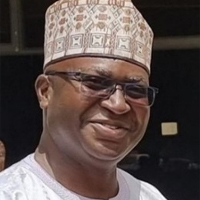
Permanent Representative of the Republic of Gambia to the United Nations Office and other international organizations in Geneva
| |

Senior Technology Coordinator, BDT, ITU
| |

CEO, Internet Para Todos
| |

Research Manager, Alliance for Affordable Internet (A4AI) |
| Session 5 | Time | Languages |
|---|
| Emerging Technology (ITEC) | 17h30 – 19h00 [CEST] | [English/Spanish] |
| Description |
|---|
Space assigned to present a general technical view of 5G networks, technical concepts, the deep packet inspection (DPI) and the benefits to network operators, the work of ITU on next-generation networks developed by the ITU-T SG13 and ITU-D SG2.
Keynote Speaker 1: Yesterday today and tomorrow for network awareness in ITU-T The Keynote Speaker from ITU-T SG13 presented the deep packet inspection (DPI) and the benefits to network operators in many areas such as service/application awareness, quality of service (QoS) assurance, network management and other benefits. Deep packet inspection and intelligent network awareness can also be the generic core technologies and common building blocks for some application technologies which depend on deep packet inspection and intelligent network awareness tightly such as big data-driven networking (bDDN).
Keynote Speaker 2: Digital Transformation for Sustainable Development: 5G Deployment and Transition from 4G The Keynote Speaker from ITU-D SG2 discussed why digital transformation is vital for sustainable development. He also discussed why connectivity via new emerging technologies, such as 5G is essential by way of presenting 5G use cases and requirements. He then presented 5G deployment challenges and examine the issues that are pertinent to the deployment of different segments of 5G, namely the core network, the transport network, and the radio access network. He also discussed recent studies, standards, and guidelines on safe levels of human exposure to electromagnetic fields (EMF) caused by wireless networks, including 5G.
|
| Panellists |
|---|

Regional Director, ITU Regional Office for the Americas
| |

Expert from ITU-T SG13, Technical Director, Fiberhome Technologies | |

Former Chairman, ITU-D SG-2, Professor of Electrical and Computer Engineering at Tarbiat Modares University | | |
-
Tuesday 6 July 2021 - Fundamentals of emerging technology for connectivity, such as cybersecurity, networks and infrastructure, spectrum
| Session 1 | Time | Languages |
|---|
| Safe and secure resilient network solutions | 06h00 – 07h00 [CEST] | [English] |
| Description |
|---|
The emerging technologies such as blockchain, AI, IoT and autonomous systems potentially offer enormous benefits to society but also new network security, information security, data security, and cyber-security risks. To build resilient and secure digital economies, it is crucial governments and private sector stakeholders understand these new risks and develop and execute strategies to mitigate them. The assembled panel of experts elaborated on the challenges and way forward for securing critical infrastructure, strengthening emergency response capabilities and building cyber resilience.
|
| Panellists |
|---|

Executive Director, Civil Service Institute, New Zealand | |

Principal Research Fellow, UNU, Macao, China | |

Managing Partner, WELCHMAN KEEN | |

Senior Advisor – Strategic Engagement, APNIC |
| Session 2 | Time | Languages |
|---|
| Generation Connect: developing technology to connect and to deliver quality education for youth | 10h00 – 11h00 [CEST] | [All 6 official UN languages] |
| Description |
|---|
| Generation Connect is the overarching initiative of the ITU Youth Strategy. Generation Connect aims to engage global youth and encourage their participation as equal partners alongside the leaders of today’s digital change, empowering young people with the skills and opportunities to advance their vision of a connected future. |
| These challenging times have called for young people to adapt to new ways of learning. Learning virtually or at least in a hybrid format [virtual x physical] is now mainstream. As new educational technologies emerge, how can we ensure that they are fit for purpose for diverse youth across the world? How can we ensure that no young person is left behind? What role can governments, the private sector and international organisations play in fostering quality education and opportunities for youth online? |
| This Generation Connect x ET Week session had been co-designed with Generation Connect Regional Youth Envoys. The session focused primarily on two inter-related themes: the evolving role of emerging Technology in delivering quality education for youth, and the importance of emerging technology in the digital inclusion of marginalised youth across the world. |
| The session also featured a special musical performance by one of the talented young violin players, Wassila Chtioui, a TIC student. |
| Panellists |
|---|

Generation Connect Americas Youth Group
| |

Generation Connect Team Rep | |

Generation Connect Americas Youth Group
| |

Generation Connect Arab States Youth Group
|

Generation Connect Africa Youth Group
| |

Senior Advisor, Digital Services, BDT, ITU | |

Generation Connect Arab Youth Group | |

Geek Teachers |

Generation Connect Africa Youth Group
| |

Generation Connect Asia and the Pacific Youth Group
| | | | |
| Session 3 | Time | Languages |
|---|
| Emerging technology for telecommunications in disaster management | 11h00 – 12h00 [CEST] | [All 6 official UN languages] |
| Description |
|---|
Based on feedback subsequent to the 2019 GET, in 2021 ITU would like to create a repository of case studies and subject matter experts that informs and connects relevant stakeholders concerning new applications of emerging technology, or novel use of existing technology, to improve the application of ICTs for the disaster risk management cycle. These tools are particularly vital to least developed countries (LDCs), landlocked developing countries (LLDCs), and small island developing states (SIDS), which are particularly vulnerable to disasters and often lack resilient ICT infrastructure and connectivity, sufficient early warning systems, public alerting capabilities, and the capacity to respond during and after events. ITU’s emerging technologies week is an ideal opportunity to introduce and advertise this concept, solicit feedback, and provide examples of the type of contributions that would be ideal for this repository.
ITU/BDT/EET provided a brief overview of the concept for its development of a repository for case studies and subject matter experts that are working to advance ICTs’ capabilities in the disaster risk management cycle. Following this initial informational brief, three presenters provided 10-minute interventions on their ongoing initiatives to take advantage of emerging technologies for specific aspects of disaster risk management.
To organize this event, ITU/BDT/EET partnered with ITU/WMO/UNEP Focus Group on AI for Natural Disaster Management (FG-AI4NDM), which capitalizes on the growing interest and novelty of AI in the field of natural disaster management to help lay the groundwork for best practices in the use of AI for: assisting with data collection and handling, improving modelling across spatiotemporal scales, and providing effective communication.
|
| Panellists |
|---|

Head, Emergency Telecommunications and Environment Division, BDT, ITU | |

Chief of Study Groups, TSB, ITU
| |

PhD, FRGS, FCMI, Chairperson and CEO, eWorldwide Group | |

Drones Team Project Manager, World Food Programme |

Head, Hydrological and Water Resources Services Divsiion (HWR), WMO
| |

Department of Earth Sciences at the University of Oregon | |

TBD
NASA/IBM | | |
| Session 4 | Time | Languages |
|---|
Big data for measuring connectivity
| 14h00 – 15h00 [CEST] | [All 6 official UN languages] |
| Description |
|---|
| Reliable and timely statistics are key to effective policymaking, in all development domains. The 2030 Agenda for Sustainable Development has highlighted not only the importance of data and monitoring but also the lack of data. In this context, there has been a UN call to use new data sources, including big data, to complement official statistics. As the lead UN agency for telecommunications/ICT statistics, these developments pave the way for new opportunities, new responsibilities, and an important role for ITU to explore the use of big data to produce policy-relevant ICT statistics. The data coming from new data sources, particularly mobile phone big data, are expected to complement existing traditional statistics, benchmarks, and methodologies to measure the information society and to guide policy makers by producing recommendations on the different technical aspects of accessing and using big data. The session showcased the pioneer work of ITU and other organisations in big data and feature practitioners and policymakers. It focused on least developing countries where both connectivity and data availability represent pressing and significant challenges. |
| Panellists |
|---|
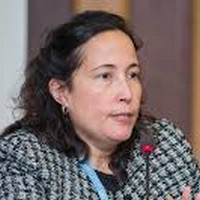
Economic Affairs Officer, UNCTAD | |

Chief, Digital Knowledge Hub Department (DKH), BDT/ITU | |

Programme Officer, BDT/ITU | |

Head of International Sales, Positium |

Senior Statistician, ICT Data and Analytics Division, DKH/BDT/ITU | |

Director of Mobile Data Partnerships, Flowminder | | | | |
| Session 5 | Time | Languages |
|---|
| Resources needs for connectivity | 15h00 – 16h00 [CEST] | [All 6 official UN languages] |
| Description |
|---|
The expansion of the Internet and Internet of Things will increase the number of connected devices and will generate data on a scale which far exceeds the current Internet. In addition to the demands on wireless spectrum, the anticipated increase in Internet-connected devices will require billions of new Internet Protocol addresses. In this session, panelists discussed:
- Spectrum consideration for emerging technology
- Critical Internet Resources
- Internet Domain name system
|
| Panellists |
|---|

Head, Telecommunications Network & Spectrum Management Division (BDT/ITU) | |

Counsellor for ITU-R Study Groups, Radiocommunication Bureau, ITU | |

Spectrum expert, Telecommunications Regulatory Authority, Lebanon | |

The Board Chairperson of the ZA Domain Name Authority (ZADNA) |

Head of Stakeholder Development, AFRINIC | |
| | | | |
| Session 6 | Time | Languages |
|---|
| The digital divide - The adoption of new generation networks in Rural Areas (ITEC) | 17h30 – 19h00 [CEST] | [English/Spanish] |
| Description |
|---|
| This session included a round table for the discussion about the National Plans for the implementation of 5G networks and the possible increase of the national and regional digital divide with the adoption of these new generation networks. |
| The high-level session analysed how governments can face the differences between urban and rural areas, how they can connect rural communities, and which strategies they are planning to connect the unconnected towards 2030. |
Some of the important questions that were discussed:
- What considerations have been incorporated into national levels about reducing the current digital divide and towards the adoption of next-generation networks?
- What are the most determining factors that have contributed to the current digital divide nationally and regionally?
- How are the governments going to face the digital divide with the adoption of new generation networks?
- Which strategies can governments implement to connect the 49% who still does not have access to communications networks?
|
| Panellists |
|---|

Senior Consultant, BlueNote Management Consulting | |

President of the Communications Service Regulatory Unit (Ursec), Uruguay
| |

Vice-Minister of Connectivity of the Ministry of Information Technologies and Communications of Colombia (MinTic) |
|

Director of Policy and Postal Affairs, Ministry of Telecommunications and the Information Society (Mintel), Ecuador |

Head of the Radio Spectrum Unit, Federal Institute of Telecommunications (IFT), Mexico
| |
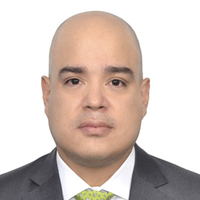
General Director of Policies and Regulation in Communications Ministry of Transport and Communications (MTC), Peru |
|
| | |
-
Wednesday 7 July 2021 - Role of emerging technology to connect the unconnected and accelerate the digital transformation of LDCs, LLDCs, SIDS
| Session 1 | Time | Languages |
|---|
| Emerging technology solutions: Bringing new digital experiences in remote areas | 06h00 – 07h00 [CEST] | [English] |
| Description |
|---|
| As high capacity international and national connectivity networks continue to rise, emerging technologies have the potential to deliver transformative experiences to end users. The value realization is even greater in countries (small islands developing states, mountainous regions) where the costs of service delivery are high. Digital devices and services, powered by technologies such as artificial intelligence, blockchain, 5G, big data, cloud computing are being considered a panacea to several socio-economic challenges. |
| Their adoption in sectors such as health, agriculture, governance, education, finance, shopping etc. are creating a great potential for synergy and customization driving a whole-of-government approach. However, as these technologies are at different maturity levels, it poses several challenges pertaining to enabling environment (policies, regulation), standardization, interoperability, scalability, capacity and affordability. |
| The session focused on experiences of emerging technologies and the potential of its adoption to solve challenges in a smart village and smart islands context. |
| Panellists |
|---|

Assistance Chief Executive Officer, Ministry of Communications and Information Technology, Samoa | |

Sales Manager, SES Network | |

Director Networks, Dhiraagu | |

Director, Strategy, Knowledge and MEL, Digital Green |
| | |
| |
| |
|
| Session 2 | Time | Languages |
|---|
| Spotlight - Worldwide secure and efficient communication with SCION | 10h00 – 10h20 [CEST] | [All 6 official UN languages] |
| Description |
|---|
| SCION is a next-generation internet architecture, with state-of-the-art security and scalability properties, meant to overcome the limitations of the current IP and BGP-based internet, to achieve strong security, high availability, and high efficiency. Born as a research project at ETH Zürich and Carnegie Mellon University, the architecture is now used for critical infrastructure communication by industry and government. In this talk, the architecture of SCION was introduced and how its path-aware properties can be used to reduce network infrastructure carbon footprint was demonstrated. It was also showed that how an NGO could explore the use of SCION to protect confidential information for humanitarian purposes. |
| Panellists |
|---|

Cybersecurity Coordinator, BDT, ITU | |

Research Assistant, Network Security Group ETH Zürich | | | | |
| Session 3 | Time | Languages |
|---|
| IoT & 5G as enabler for smart and sustainable cities in the Arab Region | 10h20 – 12h00 [CEST] | [All 6 official UN languages] |
| Description |
|---|
This session discussed the role of the Internet of Things (IoT) and 5G for development and creating a smart world. In addition, it discussed the role that Internet of Things (IoT) play in relation to converging technologies for building smart sustainable cities with integrated ecosystems as well as discussing the Arab New Urban Agenda, its key opportunities and challenges for policy and practice.
|
| Panellists |
|---|

Programme Officer, ITU | |

Head of Middle East and North Africa (MENA), GSMA | |
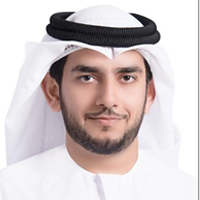
Manager Spectrum Policy, Spectrum Management Affairs Department, Telecommunications and Digital Government Regulatory Authority (TDRA), UAE
| |

PhD, Former Member of the Egyptian Parliament, Member of Telecommunications, and Foreign Affairs Committees in the Parliament & Associate Professor, Nile University |
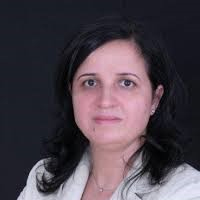
PhD, General Engineer, Chief Innovation and Strategy Officer, Tunisie Télécom, Tunisia
| |

PhD, Sector Head, National Projectors, National Telecom Regulatory Authority (NTRA), Egypt
| |

Vice-President, Smart Way Consulting, Bahrain Smart Cities Summit
| | |
| Session 4 | Time | Languages |
|---|
| Emerging terrestrial technology for connectivity | 14h00 – 15h00 [CEST] | [All 6 official UN languages] |
| Description |
|---|
Emerging terrestrial technology holds the promises of low latency, high bandwidth and connecting more people and things. Transitioning to emerging technlogy will have different requirements and implications for developing countries.
|
In this session, participants discussed:
- Emerging fiber-optic technology
- Technical requirements of 5G and beyond
- Best practices for maintaining/upgrading networks and infrastructure
- Challenges and opportunities of emerging terrestrial technology in LDCS, LLDCS and SIDS
- Best practices in implementing flexible/elastic infrastructure and future technology
- Affordability and accessibility of connectivity in LDCS, LLDCS and SIDS
|
| Panellists |
|---|

Chair ITU-D Study Group 1, Director of International Cooperation, Telecommunication/ICT Regulatory Aughority and Post Office of Côte d'Ivoire (ARTCI)
| |

AT&T Fellow, Distinguished Member of Technical Staff for AT&T Labs in Middletown, NJ | |

CEO and cofounder, Transcelestial Technologies | |

Vice-President, International Government Affairs, Qualcomm International Incorporated |

Senior Technology Manager, GSMA | | | | | | |
| Session 5 | Time | Languages |
|---|
| Emerging Space technology for connectivity | 15h00 – 16h00 [CEST] | [All 6 official UN languages] |
| Description |
|---|
| This session discussed the challenges and opportunities of space emerging technology for connectivity such as LEO constellations, HAPS and other emerging satellites technology. In particular, panellists discussed how the space emerging technology could contribute to achieving affordable and sustainable Internet connectivity and promote digital transformation of LDCS, LLDCS and SIDS. |
| Panellists |
|---|

Acting Executive Director, Uganda Communications Commission
| |

Head of Spectrum Management Aero-Connectivity, Airbus
|
|

Vice President,Hughes Network Systems, LLC |
|

Senior Vice President, Global Cloud Sales & Strategic Partnerships, SES Networks
|

Senior Advisor for Regulatory Affairs, OneWeb
| | |
| |
| |
| Session 6 | Time | Languages |
|---|
| Adoption of 5G in the Region, future opportunities (ITEC) | 17h30 – 19h00 [CEST] | [English/Spanish] |
| Description |
|---|
| This session offered the space for discussion on the deployment of 5G in the AMS Region, the further projections, needs, national 5G plans, national digital plans, etc. |
| Some countries in the Region have already implemented trials for 5G Networks in the main cities, some others have implemented national studies to define the applications to the national industry, and some others have already defined national 5G strategies. |
The session discussed these main questions:
- Considering that there are still users on 2G, 3G and 4G networks; What projections has your country considered for the adoption of new networks such as 5G?
- What population sectors have been mainly identified where to deploy 5G?
- Considering that the global situation of the pandemic has produced a change towards all-digital, demanding greater broadband access, what actions have been implemented to accelerate the deployment of national infrastructure?
- What sectors of industry, business, services, have been initially identified to adopt 5G?
- By 2030, how are the projections of interconnecting rural sectors with new generation networks?
|
| Panellists |
|---|

Executive Director, Dominican Institute of Telecommunications (Indotel) | |

Regulatory Strategies Department of the Authority of Public Services (ASEP), Panama | |

Spectrum and Orbit Manager National Telecommunications Agency (Anatel), Brazil | |

Head of the Regulatory Policy Division Undersecretariat of Telecommunications (Subtel), Chile |

Undersecretary of Information and Communication Technologies, Secretariat of Public Innovation, Head of Cabinet of Ministers, Argentine
| |

Vice-Minister of Telecommunications, Ministry of Science, Technology and Telecommunication (MICITT), Costa Rica
| |
| | |
-
Thursday 8 July 2021 - Intelligent connectivity and applications (AI, Big Data, IoT) and their impact on the digital transformation of LDCs, LLDCs and SIDS
-
| Session 1 | Time | Languages |
|---|
| Advanced digital networks for data-oriented societies | 06h00 – 07h00 [CEST] | [English] |
Description
|
|---|
| As the growing number of citizens of start to adopt a digital lifestyle, we are seeing a developing ecosystem of distributed devices and processors that provide an enriched user experience through exchanging and analysing critical data and providing humans with actionable insights that an independent device would be incapable of doing. Naturally, the infrastructure or networking required to connect this ecosystem has become mandatory to leapfrog into the Digital data-oriented economies and societies. The distinct concept of modern Digital Infrastructure with its connected smart devices lies in understanding how this immense technological advancement can be leveraged and applied for the benefit of all the stakeholders. This session focused on some of the key advancements of this digital infrastructure including distributed IXPs, IPv6 requirements for future connectivity, digital networks for multi-cloud connectivity, edge computing demands and others. The session also provided key findings of the study on ASP regional trends on providing access to IMT bands for Mobile service. |
| Panellists |
|---|

Board member, ATRA (Afghan Telecom Regulatory Authority) | |

Vice President and Head of Spectrum Policy Office at SoftBank Corp | |

Vice President, Wireless Network Development Huawei Technologies
| |

Managing Director of Enterprise Networking for APJC
|

Managing Director, Windsor Place Consulting Pty Ltd
| | | | | | |
Session 2
| Time | Languages |
|---|
| Blockchain and cybersecurity challenges and opportunities for digital finance | 10h00 – 11h00 [CEST] | [All 6 official UN languages] |
| Description |
|---|
Digital finance and mobile payments have and continue to hold the promise to improve the standard of living for many people in the developing world. Emerging technologies such as blockchain are swiftly entering the financial services sector and could resolve the trust issue more efficiently. However, the security of the mobile applications providing digital financial services needs a rigorous method to test for systemic vulnerabilities in a comprehensive manner. Being able to detect such vulnerabilities is no easy task for developers, regulators and DFS providers. ITU established recently a DFS Security Lab that can help regulators and service providers in auditing mobile payment applications. This session provided a high level overview of the innovative applications of blockchain, cybersecurity concerns for regulators and related policy and regulatory challenges for the digital financial services sector.
|
| Panellists |
|---|

Head of UABdigital & Sr. Advisor Union of Arab Banks | |

Project Officer, TSB, ITU
| |

Digital Innovator, Brazilian Development Bank (BNDES)
|
|

Advisor Emerging Technologies and Digital Transformation Smart Dubai Government Est. |

Director, Objectif Sécurité SA
| | | | |
| |
| Session 3 | Time | Languages |
|---|
| Towards a sustainable digital transformation and a net-zero emission with emerging technology | 11h00 – 12h00 [CEST] | [All 6 official UN languages] |
| Description |
|---|
| This session explored the role of digital transformation in accelerating the global progress towards net-zero emission in particular in least developed countries (LDCs), landlocked developing countries (LLDCs) and small islands developing countries (SIDS); an emphasis will be put on African countries' experience. Artificial intelligence, the Internet of Things, digital twin, blockchain are among the latest emerging technologies that are helping to improve accessibility to clean energy and achieve global sustainability. The session placed a special focus on the importance of achieving a sustainable digital transformation, which may include topics such as examining energy efficiency in the information communication technology sector, adopting a circular approach to digitalization, and achieving net-zero emission within the ICT sector itself. |
| Panellists |
|---|

Lecturer, Faculty of Business and Economics, Multimedia, University of Kenya
| |

WP2/5 Chairman, International Telecommunicaton Union | |
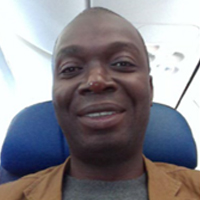
Professor at ESMT,
Dakar (Senegal)
| |

Programme Officer, ITU |

Programme Officer, UNEP DTU Partnership
| |
|
|
| | |
| Session 4 | Time | Languages |
|---|
| Blockchain and Decentralized Identity for enabling online trust and accountability | 14h00 – 15h00 [CEST] | [All 6 official UN languages] |
| Description |
|---|
| Blockchain technology has the potential to transform all sectors and will bring greater trust and transparency in the world’s major industries. With the emergence of Decentralized Identifiers (DIDs) and Verifiable Credentials (VC) as core standards, decentralized identity can finally provide individuals the ability to securely manage their identities online. This is achievable when coupled with Distributed Ledger Technology (DLT). The combination of DID, VC and DLT technologies can provide adopters the ability to construct trust framework in which the individual can exercise control over their identity relation and transaction in a manner that is secure and private. The objective of this session was to provide an overview of blockchain and decentralized identity systems, applicable use cases and examples of DLT based frameworks for implementing various applications and strong decentralized on-line identity solutions. |
| Panellists |
|---|

Study Group 17 Vicechair. WP2/17 Vicechair, Universidad Nacional de La Plata, Argentina | |

Associate Rapporteur, vicechair WP4 Study Group 17, Alibaba, China | |

Rapporteur, ITU-T Study Group 17, Q10/17 | |

ITU-T Study Group 17 Vicechair, WP1/17 Chairman,Technology Advisor, Kryptonite |

ITU-T Study Group 17, Security, Chairman, Dr/Professor, Soonchunhyang University | | | | | | |
| Session 5 | Time | Languages |
|---|
| Smart Cities and Communities | 15h00 – 16h00 [CEST] | [All 6 official UN languages] |
| Description |
|---|
With half of the world's population living in cities, it is important to explore innovative approaches to achieve sustainable development for cities and rural communities. This session explored approaches to designing smart cities and communities based on people-centred innovation, technology and applications.
|
Communities of all sizes can benefit from the use of emerging digital technology and collected data and generation of new information to improve the quality of life for the citizens and resources efficiency. In this session, participants discussed:
- Emerging Technology for people-centred smart cities and communities;
- The global ecosystem of smart cities and communities, including technology, governance, and policies;
- Challenges and opportunities for creating sustainable smart cities and communities in LDCs, LLDCs and SIDs.
|
| Panellists |
|---|

CEO, Co-Founder Athena Advisory and SCERTIFY | |

Mayor of Tunis, Tunisa | |

Assistant Director for Advanced Recognition Technologies & Digital Identity, Saudi Data and AI Authority | |

Senior Advisor, Digital Services, BDT, ITU |

CEO Smart Africa | |

Vice-Chair, United for Smart Sustainable Cities (U4SSC) / Head of Smart Sustainable Cities, Spanish Association for Standardization (UNE) | |

Chief Operation Officer at IRCAI | | |
| Session 6 | Time | Languages |
|---|
| The change of paradigm to online life, projections, opportunities (ITEC) | 17h30 – 19h00 [CEST] | [English/Spanish] |
| Description |
|---|
This session offered a view of the new trends, the advances on technologies, what are the new emerging networks for the Region from the ICT operators’ perspective. The session discussed the following aspects:
- Considering the changing paradigm of normal live after COVID-19, which projections in new generation networks can we expect in the coming years?
- Considering the need for new services, the need for interconnection, etc. that the pandemic has exposed, how has the industry reacted?
- What projections and new services are foreseen towards smart grids?
- What technological needs are identified as coming priorities?
- What projections for managing the digital divide can be achieved by 2030?
|
| Panellists |
|---|

President of the Dynamic Spectrum Alliance (DSA) | |

Director of Digital Service, Ericsson, Chile
| |

Regional Strategy and Technology Director, GSMA Latin America, GSMA |
|

LATAM Public Policy Manager, Connectivity and Access, Facebook |

Deputy Executive Director, LACNIC |
|

Director, Caribbean Affairs and Development Internet Society (ISOC) |
| |
| |
-
Friday 9 July 2021 - Emerging technology for connectivity in the post COVID era
| Session 1 | Time | Languages |
|---|
| Post COVID era: Enabling an inclusive society | 06h00 – 07h00 [CEST] | [English] |
| Description |
|---|
| The pandemic has transformed the way we work, interact, and utilise our spaces. Working from home was once a concept for the few, is now needed for the masses. How will this change the living and working landscape of working impact the innovative concepts such as smart cities? Is there an opportunity accelerate the effort to bridge the digital divide, as more urban knowledge workers can continue to work from home? |
| This session focused on the emerging technology enabling the Smart Cities/Villages, post COVID era, and how the changing landscape can support the acceleration of bringing emerging technology to support the wider society, particularly the vulnerable group and communities. |
| Panellists |
|---|

Regional Director, ITU Regional Office for Asia and the Pacific |
|

NHK - Japan | |
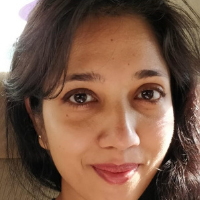
Public Policy Manager, Connectivity & Access Policy, Facebook | |

Chief Executive Officer, KaiOS Technologies, Inc. |
| Session 2 | Time | Languages |
|---|
| Spotlight - Ethics of emerging technologies | 10h00 – 10h30 [CEST] | [All 6 official UN languages] |
| Description |
|---|
| Join Dafna Feinholz and Marco Obiso for a fireside chat about the ethics of emerging technologies. |
| Panellists |
|---|
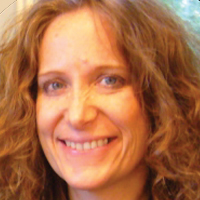
Chief of the Bioethics and Ethics of Science, UNESCO | |

Head of the Cybersecurity Division and Acting Chief of the Digital Network Society Department, ITU | | | | |
| Session 3 | Time | Languages |
|---|
Connectivity for inclusive digital societies
| 10h30 – 12h00 [CEST] | [All 6 official UN languages] |
| Description |
|---|
| This session discussed the role of connectivity and emerging technology for creating more inclusive digital societies, especially in the post COVID era. Panellists discussed case studies and examples of implementation of inclusive connectivity solutions in the Africa region. Panellists also shared their experience of using emerging technology for connectivity towards digital transformation, focusing on challenges and opportunities for implementing inclusive connectivity solutions in the region. |
| Panellists |
|---|

Secretary General, African Telecommunications Union | |

Regional Director, ITU Regional Office for Africa
| |

Head of Projects, La Difference | |

Senior manager, INQ |

CEO and Founder, Tulip Industry | |

CEO and founder, OpenBusiness Africa Limited | |

Poet, Writer and Youth activist | | |
| Session 4 | Time | Languages |
|---|
| Learning in a post COVID world: How can emerging technologies help achieve universal access to quality education? | 14h00 – 15h00 [CEST] | [All 6 official UN languages] |
Description
|
|---|
| The COVID-19 pandemic has taken a toll in the world hitting particularly hard already vulnerable populations in LDCs, LLDCs and SIDs in the areas of Education, Healthcare, and Jobs. The pandemic has also shown how connectivity, ICT infrastructure and emerging technologies can help countries be better prepared to react to major global crisis and to ensure their societies can continue learning, working and accessing basic services for their survival. Within the framework of the Emerging Technology Week 2021, ITU’s global initiatives: Connect2Recover and Giga, hosted a session to highlight how emerging technologies and strong national digital infrastructure ecosystems can help countries remain operational and resilient in times of major global crisis, and in particular, contribute to the achievement of SDG 4 (Quality Education). |
| Panellists |
|---|

Regulator, Office of the Regulator of Samoa, Apia, Samoa | |

Chief, Special Initiatives, Office of the Director, BDT, ITU | |

Data Scientist, Giga, Office of Global Innovation, UNICEF | |

Market Development Manager - Networks, Intelsat |

Digital Development Specialist, World Bank | |
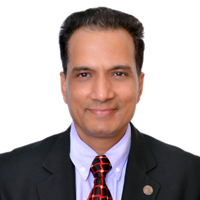
Senior Advisor, ITU | |

Partner & Director, Telecommunications, BCG | | |
| Session 5 | Time | Languages |
|---|
| Artificial intelligence for health | 15h00 – 16h00 [CEST] | [All 6 official UN languages] |
| Description |
|---|
This session looked at two ITU-T Focus Groups that both have activities in the field of biological hazards. It featured speakers of the management teams of the Focus Groups providing overviews of the two respective groups. Additionally, speakers from the groups working on specific topics, introduced applications on the items: outbreak detection and two forms of malaria detection.
The session was introduced by the Chief of the Study Groups Department.
This session presented Use case from the ITU Focus group on AI for Health (FG-AI4H). |
| Panellists |
|---|

Chief of Study Groups, Telecommunication Standardization Bureau, ITU | |

Data Scientist, Helmholtz Centre for Infection Research | |

Innovation Manager at Fraunhofer HHI and Chair of ITU/WMO Focus Group on AI for Natural Disaster Management, Fraunhofer Heinrich Hertz Institute | |

FG-A14H Vice-Chair, Senior Executive Editor Director (Digital), The Lancet |

Researcher, AI LAB, Makerere University | |

COO at Zzapp malaria | | | | |
| Session 6 | Time | Languages |
|---|
Opportunity of satellite connectivity (organised by ITU/UNOOSA/Office of the Secretary-General's Envoy on Technology)
| 16h00 – 17h30 [CEST] | [English] |
| Description |
|---|
Daily life for a large portion of the world's population now involves sharing information via mobile phones, personal computers and other electronic communication devices. However, many people remain left behind, living in areas still not reached by Internet infrastructure or with few, unaffordable options for connectivity. Space-based technologies, namely communications satellites, enable global telecommunications systems by relaying signals with voice, video and data to and from one or many locations. While a variety of earth-based alternatives to space technologies exist, space-based technology can often reduce the need to deploy infrastructure and offer more cost-effective service delivery options.
Providers of new satellite technologies and applications aspire to tap into unserved and underserved areas, creating a significant market for affordable global internet access. Past efforts were devised mostly based with satellites in higher orbits that provided limited connection speed impeding the demand-driven approach. Recent developments in the launcher sector are reducing the costs of sending satellites into orbit and could finally achieve the long-standing ambition to bridging the digital divide through new satellite developments. The event contributed to the joint effort for the implementation of Key Actions on Global Connectivity outlined in the United Nations Secretary-General’s Roadmap for Digital Cooperation, as well as the Sustainable Development Goals 9.C Target, ‘Significantly increase access to ICT and strive to provide universal and affordable access to internet in LDs by 2020’.
|
| Panellists |
|---|

Scientific Affairs Officer, UNOOSA | |

Space System Coordination, ITU | |

Assistant Secretary General, Officer in Charge, Office of SG's Envoy on Technology | |

Director, UNOOSA |

Managing Director/CEO, Nigerian Communication Satellite Limited | |

Senior Consultant, Euroconsult | |

Space Programmes Frequency Manager, European Union | |

CTO, Rwanda Space Agency |

Vice-President Corporate Development, Viasat | |

Director of Licensing and Market Access, Telesat Canada | |
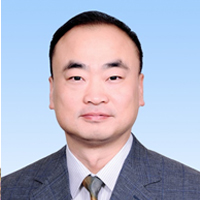
Vice-President of China Satellite Communications | | |